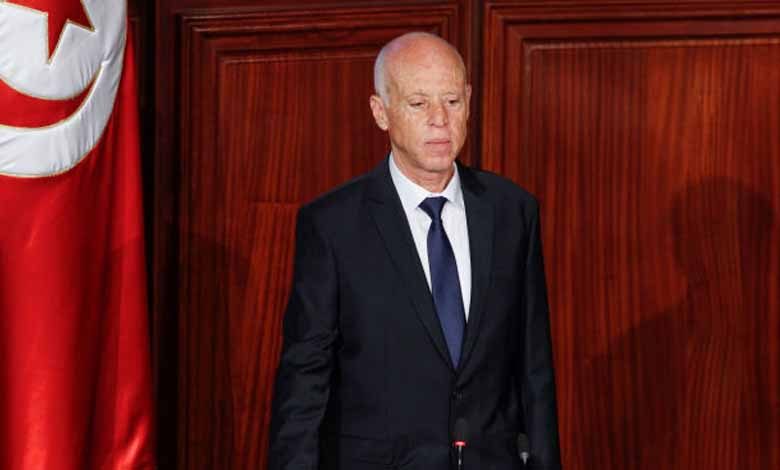Tunisia’s president speaks of coup attempt by relegation of justice

Tunisian President Kais Saied emphasized the need for the judiciary to be independent and effective and for the law to be applied equally to everyone.
This came during a meeting Friday at the Carthage Palace with Tunisian Justice Minister Leïla Jaffel, during which the meeting discussed the state of the judiciary and its work.
Saied expressed his regret over the assassination of justice carried out by some judges, stressing that this situation should not continue as it is, especially that some cases are very serious such as the coup attempt, and some of them have formed a parliament and government in the diaspora, calling on the public prosecution to act and enforce the law.
The Tunisian president refers to the decision of the leader of the Muslim Brotherhood Ennahdha Movement and the president of the dissolved parliament, Rached Ghannouchi, to continue holding parliamentary sessions, in what observers considered an announcement of an open rebellion of the Brotherhood against the laws of the state, despite his referral to the judiciary on charges of conspiring against the security of Tunisia and forming a criminal agreement, last March 30th.
The Minister of Justice addressed her request to the Prosecutor General of the Court of Appeal of Tunisia in accordance with article 23 of the Code of Criminal Procedure, against the background of holding a plenary session of the House of Representatives and rebellion against the laws of the State.
The Tunisian president then announced the dissolution of parliament after the suspension of its work since July 25th, in accordance with the provisions of Article 72 of the Tunisian constitution to preserve the state and its institutions and to preserve the Tunisian people.
This charge alone is enough to bring Ghannouchi to account, according to article 72 of the Tunisian Criminal Code: “The perpetrator of an attack intended to replace the State, or to compel the population to attack each other with weapons, and to provoke migration, killing and looting in Tunisian soil, shall be punished by death”.
Ghannouchi’s referral to the public prosecutor, which was expected to take place last Tuesday, was postponed.












